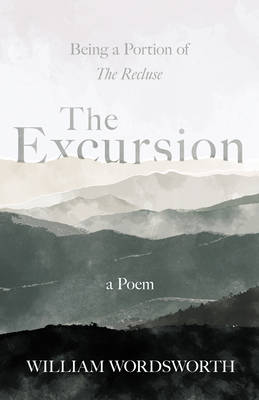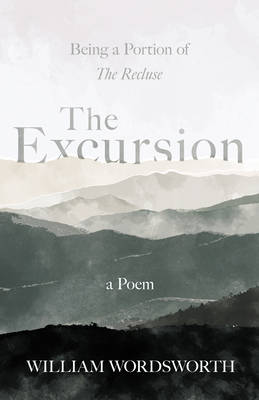
Bedankt voor het vertrouwen het afgelopen jaar! Om jou te bedanken bieden we GRATIS verzending (in België) aan op alles gedurende de hele maand januari.
- Afhalen na 1 uur in een winkel met voorraad
- In januari gratis thuislevering in België
- Ruim aanbod met 7 miljoen producten
Bedankt voor het vertrouwen het afgelopen jaar! Om jou te bedanken bieden we GRATIS verzending (in België) aan op alles gedurende de hele maand januari.
- Afhalen na 1 uur in een winkel met voorraad
- In januari gratis thuislevering in België
- Ruim aanbod met 7 miljoen producten
Zoeken
€ 27,45
+ 54 punten
Omschrijving
First published in 1814, "The Excursion" is the second and only completed part of Wordsworth's three-part work "The Recluse". It is a long poem that revolves around three central figures: the Solitary, who has lived through the horrors and hopes of the French Revolution; the Pastor, to whom a third of the poem is dedicated; and the Wanderer. "The Excursion" enjoyed popularity in the nineteenth century and is highly recommended for fans and collectors of Wordsworth's fantastic work. Included in this edition is an introductory excerpt from "Reminiscences" (1881) by Thomas Carlyle. William Wordsworth (1770-1850) was an English Romantic poet famous for helping to usher in the Romantic Age in English literature with the publication of "Lyrical Ballads" (1798), which he co-wrote with Samuel Taylor Coleridge. His best known work is perhaps "The Prelude", a semi-autobiographical poem from his early years which was changed and expanded many times throughout his life. He was poet laureate of Britain between 1843 until his death in 1850. Other notable works by this author include: "The Tables Turned", "The Thorn", and "Lines Composed A Few Miles above Tintern Abbey".
Specificaties
Betrokkenen
- Auteur(s):
- Uitgeverij:
Inhoud
- Aantal bladzijden:
- 284
- Taal:
- Engels
Eigenschappen
- Productcode (EAN):
- 9781528716383
- Verschijningsdatum:
- 20/02/2020
- Uitvoering:
- Paperback
- Formaat:
- Trade paperback (VS)
- Afmetingen:
- 140 mm x 216 mm
- Gewicht:
- 362 g

Alleen bij Standaard Boekhandel
+ 54 punten op je klantenkaart van Standaard Boekhandel
Beoordelingen
We publiceren alleen reviews die voldoen aan de voorwaarden voor reviews. Bekijk onze voorwaarden voor reviews.









